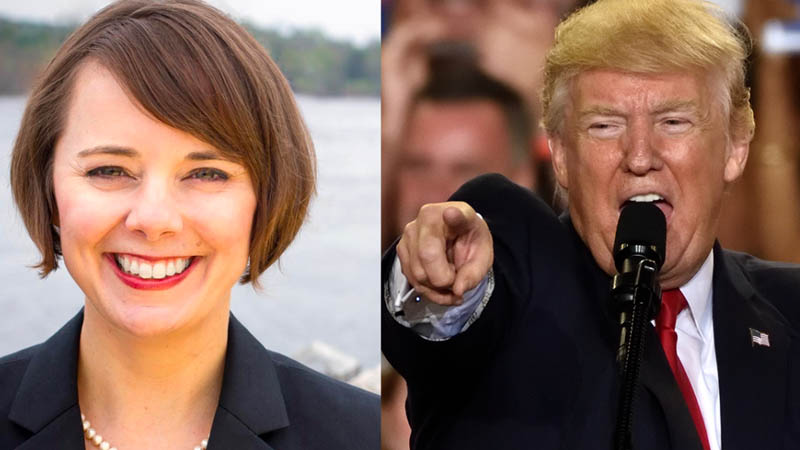Maine Secretary of State Details Reasons for Disqualifying Trump from Primary Ballot

Maine.gov; Evan El-Amin / Shutterstock.com
Shenna Bellows, Maine’s Secretary of State, has taken a decisive step by disqualifying former President Donald Trump from the state’s presidential primary ballot. This decision, grounded in Maine’s election law and the U.S. Constitution, marks Maine as the second state to bar Trump under the 14th Amendment’s Section 3.
In an interview with CBS News, Bellows, a Democrat who assumed office in 2021, elaborated on her decision. She emphasized the importance of upholding the Constitution and the rule of law, particularly in light of the events of January 6, which she described as an assault on the government and the legal system. Bellows stated, “Mr. Trump engaged in that insurrection and thereby is not qualified to be on the ballot.”
Maine’s unique electoral process places the initial responsibility of evaluating a candidate’s qualifications on the Secretary of State, unlike other states where such matters are typically resolved in court. Bellows highlighted Maine’s proud voting rights record and her swift obligation to act under state law, without waiting for potential Supreme Court intervention.
The Trump campaign, represented by spokesman Steven Cheung, has criticized Bellows’ decision, describing it as an attempt to steal an election and disenfranchise voters. They announced plans to file a legal objection in state court.
Bellows, with a background as a state senator and former executive director of the American Civil Liberties Union of Maine, reiterated her commitment to the Constitution and the First Amendment. She rejected Trump’s defense that his speech around the 2020 election and January 6 events was protected under the First Amendment, stating that it does not permit incitement of an insurrection.
Furthermore, Bellows addressed Trump’s argument that the 14th Amendment does not apply to the presidency. She countered this by referencing the early draft of Section 3, concluding that the drafters intended the presidency to be covered.
During a public hearing in Maine on December 15, Trump’s eligibility faced three challenges. Two challengers cited his involvement in insurrection, while a third introduced an argument based on the 22nd Amendment. Bellows ruled that Trump was disqualified under the 14th Amendment but not barred under the 22nd.
With Maine’s Republican primary approaching on Super Tuesday, March 5, and ballots for military and overseas voters due soon, Bellows expects a swift ruling from Maine’s Superior Court on any appeal of her decision. She acknowledged the gravity of her decision, noting the unprecedented nature of barring a presidential candidate under the 14th Amendment’s Section 3 for engaging in insurrection.


